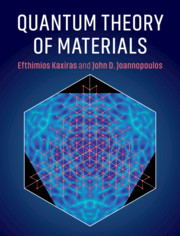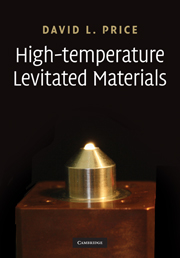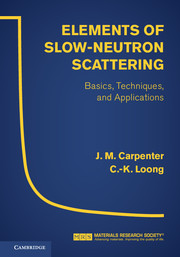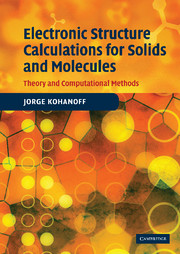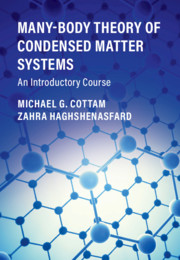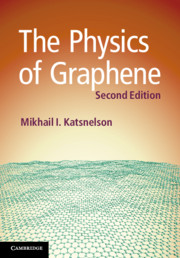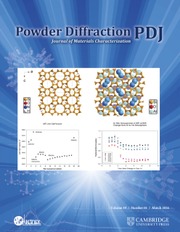Quantum Theory of Materials
£51.99
- Authors:
- Efthimios Kaxiras, Harvard University, Massachusetts
- John D. Joannopoulos, Massachusetts Institute of Technology
- Date Published: June 2019
- availability: In stock
- format: Hardback
- isbn: 9780521117111
£
51.99
Hardback
-
This accessible new text introduces the theoretical concepts and tools essential for graduate-level courses on the physics of materials in condensed matter physics, physical chemistry, materials science and engineering, and chemical engineering. Topics covered range from fundamentals such as crystal periodicity and symmetry, and derivation of single-particle equations, to modern additions including graphene, two-dimensional solids, carbon nanotubes, topological states, and Hall physics. Advanced topics such as phonon interactions with phonons, photons and electrons, and magnetism, are presented in an accessible way, and a set of appendices reviewing crucial fundamental physics and mathematical tools makes this text suitable for students from a range of backgrounds. Students will benefit from the emphasis on translating theory into practice, with worked examples explaining experimental observations, applications illustrating how theoretical concepts can be applied to real research problems, and 242 informative full color illustrations. End-of chapter exercises are included for homework and self-study, with solutions and lecture slides for instructors available online.
Read more- Covers a diverse range of both traditional and modern topics from crystal periodicity and symmetry, and derivation of single-particle equations, to graphene, two-dimensional solids, carbon nanotubes, topological states, and Hall physics
- The book is accessible to students from a range of backgrounds, and a comprehensive set of appendices reviews the prerequisite fundamental physics and mathematical tools
- Contains numerous worked examples which demonstrate how to explain experimental observations
Reviews & endorsements
'This book elucidates the essentials of practical electronic structure theory utilized under the hood of commonly employed electronic structure codes, revealed with a clarity and succinctness that only these authors with many decades of experience at the research forefront can provide. This masterpiece is essential reading for researchers engaged in modern materials research, including recent topics in topological constraints and two-dimensional materials.' Evan Reed, Materials Computation and Theory Group, Stanford University
See more reviews'This is a wonderful book clearly explaining essential concepts of the quantum theory of materials. It should become a classic text in this field.' Marvin Cohen, University of California, Berkeley
'A must-read for aspiring scientists and engineers in the age of interdisciplinary nanoscale science and technology. Two renowned masters in materials physics have opened the depth of condensed matter physics theories to the communities of condensed matter physics, materials science, physical chemistry, and chemical engineering!' Kyeongjae Cho, University of Texas, Dallas
'Written by two leaders in the field … the book features a clear exposition of solid- state physics' fundamental theoretical principles, an excellent account of modern computational approaches and applications, and a first- rate introduction to modern topological concepts and their role in shaping the dynamics of Bloch electrons. Because of the authors' clarity, focus on basic principles, and thoughtful choice of examples, Quantum Theory of Materials serves as a top-notch introduction to solid-state physics not only for physicists but also for chemists, engineers, and materials scientists.' Roberto Car, Princeton University
Customer reviews
27th Aug 2020 by 500
Very well written book to use as a text book for teaching a graduate level course on the subject. The concepts are lucidly described such that the complex mathematics can be assimilated. The topics covered include those that are the front-runners in condensed matter physics at the present times.
Review was not posted due to profanity
×Product details
- Date Published: June 2019
- format: Hardback
- isbn: 9780521117111
- length: 674 pages
- dimensions: 253 x 197 x 35 mm
- weight: 1.62kg
- contains: 242 colour illus. 45 tables 125 exercises
- availability: In stock
Table of Contents
1. From atoms to solids
2. Electrons in crystals: translational periodicity
3. Symmetries beyond translational periodicity
4. From many-particles to the single-particle picture
5. Electronic properties of crystals
6. Electronic excitations
7. Lattice vibrations and deformations
8. Phonon interactions
9. Dynamics and topological constraints
10. Magnetic behavior of solids
Appendix A: mathematical tools
Appendix B: classical electrodynamics
Appendix C: quantum mechanics
Appendix D: thermodynamics and statistical mechanics.
Sorry, this resource is locked
Please register or sign in to request access. If you are having problems accessing these resources please email lecturers@cambridge.org
Register Sign in» Proceed
You are now leaving the Cambridge University Press website. Your eBook purchase and download will be completed by our partner www.ebooks.com. Please see the permission section of the www.ebooks.com catalogue page for details of the print & copy limits on our eBooks.
Continue ×Are you sure you want to delete your account?
This cannot be undone.
Thank you for your feedback which will help us improve our service.
If you requested a response, we will make sure to get back to you shortly.
×
